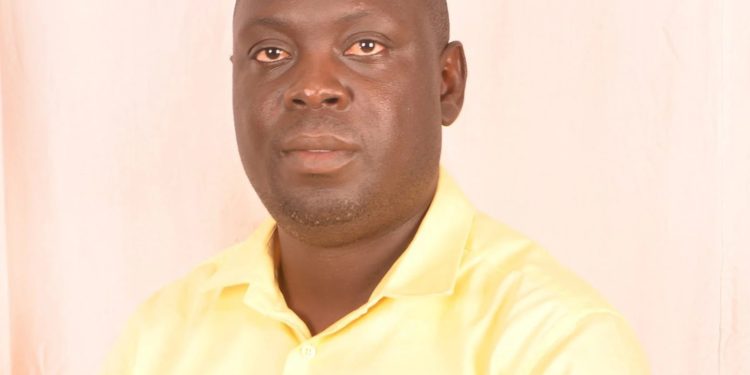On Monday, October 30, 2023, I was drawn to a snippet extracted from “The Ugandan Stance” page and making rounds, on which Uganda was reported to have been ranked as “the 2nd most corruption-ridden low income country” in the world by World Justice Project (WJP). I promptly made a search on the internet which led me to the website of the organization. Indeed, I found a section “Overall Index Score” where countries were ranked under different categories including “Constraints on Government Powers”, “Open Government”, “Fundamental Rights”, “Order and Security”, “Civil Justice” and “Absence of Corruption”.
In the various categories, Uganda performed worst in the “Absence of Corruption” category. I was, therefore, not surprised that the person that lifted the snippet went for that section, and in so doing, peppered it with politically partisan, anti-President Yoweri Museveni sentiments. In the ranting, the author accused the President of lacking political will to fight corruption, mismanagement of the country and accused him of undermining the Inspectorate of Government (IGG’s office) . The author noted corruption in District Service Commissions and Ministries, Departments and Agencies (MDAs).
While the political rants are not new and while it’s true that there are acts of corruption in the country, these are isolated cases. The majority of Ugandans are clean. Therefore, to be realistic, there should be a standard yardstick for assessing information to reach an objective deduction. I want to think that WJP is a reputable organisation which does credible research and is not biased. If it’s biased, that will be most unfortunate because that’s equally a form of corruption!
Uganda as a country has come from far when statehood almost slipped from under our feet due to gross mismanagement, inefficiency and instability to a point where we can be assessed at micro level. Those MDAs now being quoted were hardly in existence under previous administrations. Now, they are being assessed on performance and in comparison to countries without a troubled history such as ours. That’s an achievement!
The problem is, in fact, not that Uganda was compared and contrasted with other countries, because that doesn’t matter. All nations and their people want to progress and we wish the “better performers” all the luck.
However, since I am not privy to the criteria used by WJP to reach its conclusions (and I hope I can access details soon), i make do with hope that a complete picture of Uganda’s struggle with improving governance and management of public affairs wasn’t entirely ignored. The challenge I have noted in reporting on corruption is that, generally, reporters tend to pick on cases that have been exposed by Government’s own anti-graft agencies and file them as if they were discovered by a foreign entity against Government’s liking. That’s so wrong and a gross misrepresentation. There is equally a tendency to discuss one or two cases and everyone is captivated by that or those, whereas whistleblowing on fresh cases is limited.
The abundant freedom of speech and media in Uganda is partly responsible for the perception that the country is prone to corruption. People openly give their commentaries on corruption cases in the public domain unlike many other countries where such issues are taboo. In Uganda, whistleblowers are protected and rewarded for their exposure of corruption. However, the most vocal commenters hardly blow the whistle; they specialise in hyping what others have uncovered and even start to claim moral high ground and credit. And that’s a big problem-when the anti-corruption fight is used to settle political scores or to gain political capital.
Additionally, there is an absurd habit of politicians defending their own when they are earmarked for corruption, claiming political witchhunt by the state, and some have ended on the opposition side for political cover for their misdeeds.
To get a fair picture by any measure, WJP must consider how many cases have been registered by the different anti-corruption agencies, those that have been prosecuted in court; the convictions and how much of stolen public funds have been recovered. Uganda runs a robust regime against acts of corruption powered by several organs, agencies and departments, namely; the Inspectorate of Government (IGG), Criminal Intelligence and Investigations Directorate (CID) under Uganda Police Force, Internal Security Organisation (ISO), Auditor General, Parliament of Uganda (through its oversight committees), State House Anti-Corruption Unit (SHACU), offices of Resident District/City Commissioners (RD/CCs) and the general public which is increasingly mobilised to “follow the money.” It’s very unfair to denigrate this multi-pronged effort aimed at defeating corruption.
Accusing the President of undermining the IGG is laughable because he is responsible for the Inspectorate’s existence, right from its inception. And who is the complainant here? Shouldn’t it be the IGG complaining?
As a champion of the anti-corruption crusade and promoter of the “zero tolerance to corruption” gospel and agenda, President Museveni would rather be commended for his visionary leadership. Someone eager to transform his country cannot lack political will to fight corruption because the vice is a key danger to corruption. If the President is to be challenged, it should be on fair grounds but not simply sweeping his achievements under the carpet and going for what excites his enemies.
I also noted that in the ranking, flawed as I believe it is, Uganda came before Gabon, Cameroon and DRC, which are likely the “low income countries” referred to -being in Africa. Therefore, Uganda is not “the 2nd most corruption-ridden low income country” as reported by “The Ugandan Stance” but the 4th. Justice and accuracy matter!
The author is the Deputy Presidential Press Secretary
Contact: faruk.kirunda@statehouse.go.ug
0776980486/0783990861















